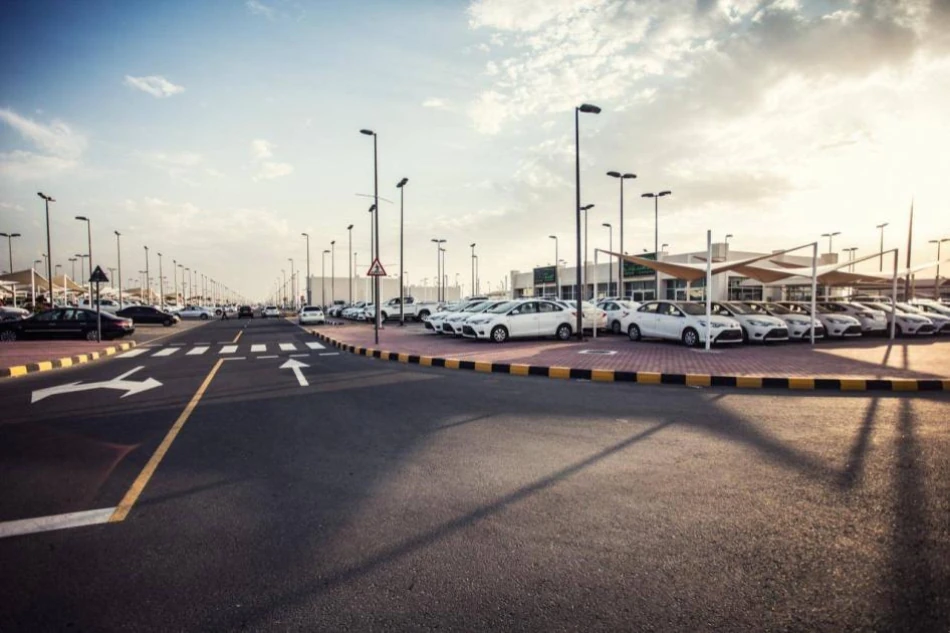
Hidden Defects Bleed Wallets of Used Car Buyers
UAE's Used Car Market Faces Fraud Crisis as Dealers Deploy Sophisticated Scams
The UAE's booming used car market, valued at AED 75.4 billion and growing at 11.73% annually, has become a breeding ground for sophisticated fraud schemes that are costing consumers thousands of dirhams. From odometer tampering to invisible paint jobs that fool electronic detection systems, dealers are employing increasingly advanced methods to hide vehicle defects, exposing gaps in consumer protection despite the country's digital infrastructure.
The Scale of Deception
Technical inspection centers report that approximately 50% of their clients who purchased used vehicles have fallen victim to "hidden defects" – problems deliberately concealed by sellers. This statistic reveals a systemic issue in a market projected to reach AED 131 billion by 2030, making it one of the fastest-growing automotive sectors in the Middle East.
The fraud techniques have evolved beyond simple cosmetic touch-ups. Dealers now use specialized paints that remain undetectable by electronic scanning equipment, creating an illusion of factory-fresh condition. Vehicles are meticulously cleaned underneath to hide oil leaks, while odometers are routinely rolled back to inflate perceived value.
Real-World Impact
Majed Khalaf discovered his American-spec vehicle had been in a major accident affecting the chassis, despite dealer assurances. The manipulated odometer and hidden accident history cost him over AED 8,000 when he eventually sold the car. Similarly, Dubai employee Hind faced AED 7,000 in transmission repairs just one month after purchase, with no legal recourse due to inadequate documentation.
The Anatomy of Modern Car Fraud
Ahmed Abu Jabara, manager of Al Fakhamah Technical Inspection Center, reveals the most common deception methods plaguing the market. "Device painting" – a specialized coating technique – makes damaged vehicles appear pristine under electronic inspection, while thorough undercarriage cleaning masks engine oil leaks during superficial examinations.
The problem is particularly acute with imported vehicles, where minor front-end damage often masks serious structural issues. While locally registered vehicles benefit from comprehensive digital records through official UAE platforms and the Ministry of Interior app, imported cars operate in a documentation gray area.
The Inspection Limitation
Even professional mechanical inspections have limitations. Internal defects like transmission damage may only manifest after extended driving, creating a window of vulnerability for buyers who believe they've conducted due diligence.
Legal Framework vs. Market Reality
Lawyer Saeed Ali Al Taher emphasizes that UAE consumer protection laws provide robust recourse for fraud victims, including vehicle replacement, full refunds, or repairs at seller expense. Consumers can also claim material compensation and file official complaints with the Ministry of Economy.
However, the gap between legal protection and practical enforcement remains significant. Many victims lack proper documentation or independent inspection reports, weakening their legal position despite strong consumer rights on paper.
Market Implications and Regional Context
The UAE's used car fraud crisis contrasts sharply with more regulated markets like Singapore, where mandatory inspection certificates and standardized documentation reduce such practices. Unlike the European Union's comprehensive vehicle history databases, the UAE's digital infrastructure, while advanced, hasn't fully addressed cross-border vehicle imports.
The fraud epidemic threatens to undermine consumer confidence in a market crucial to the UAE's automotive ecosystem. With new car prices remaining elevated and economic pressures driving demand for affordable transportation, the used car sector's integrity becomes increasingly vital for overall market stability.
Industry Reputation at Stake
Automotive expert Ibrahim Abu Zikra warns that fraudulent practices damage the entire sector's reputation, creating skepticism that affects even legitimate dealers. This reputational risk could ultimately constrain market growth and reduce the UAE's attractiveness as a regional automotive hub.
The Path Forward
The solution requires a multi-pronged approach combining stricter enforcement, mandatory independent inspections, and standardized documentation. The UAE's existing digital platforms provide the foundation, but extending comprehensive vehicle history tracking to imported cars remains essential.
For consumers, the message is clear: independent inspection at certified centers, dealing only with licensed dealers, and insisting on detailed written contracts with full disclosure requirements. As the market continues its rapid expansion, these protective measures become not just advisable but necessary for sustainable growth.
The UAE's used car market stands at a crossroads. With proper regulatory intervention and consumer awareness, it can maintain its growth trajectory while building the trust necessary for long-term success. Without action, the current fraud epidemic risks transforming a thriving market into a cautionary tale of unchecked growth.
Most Viewed News

 Omar Rahman
Omar Rahman






